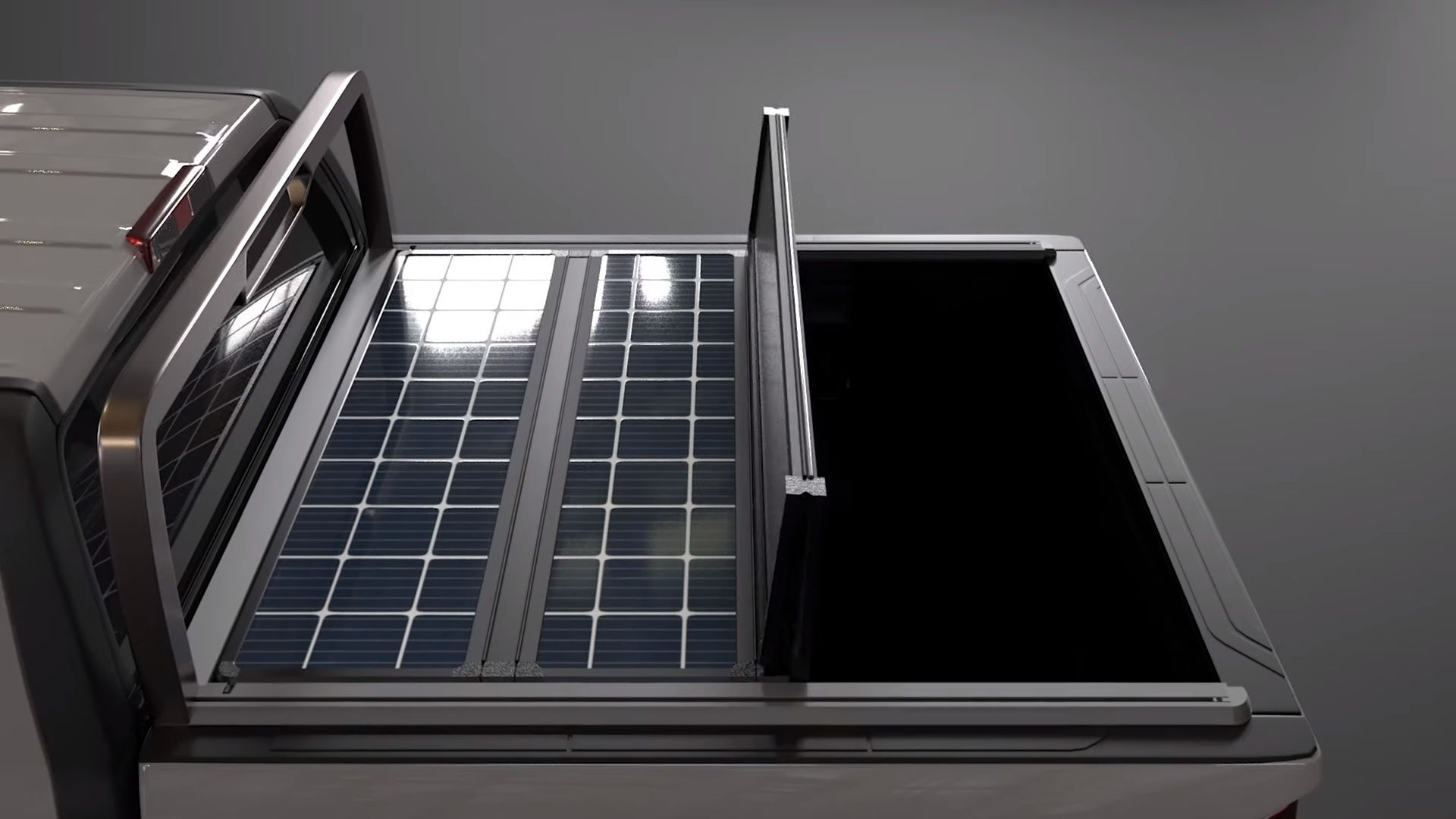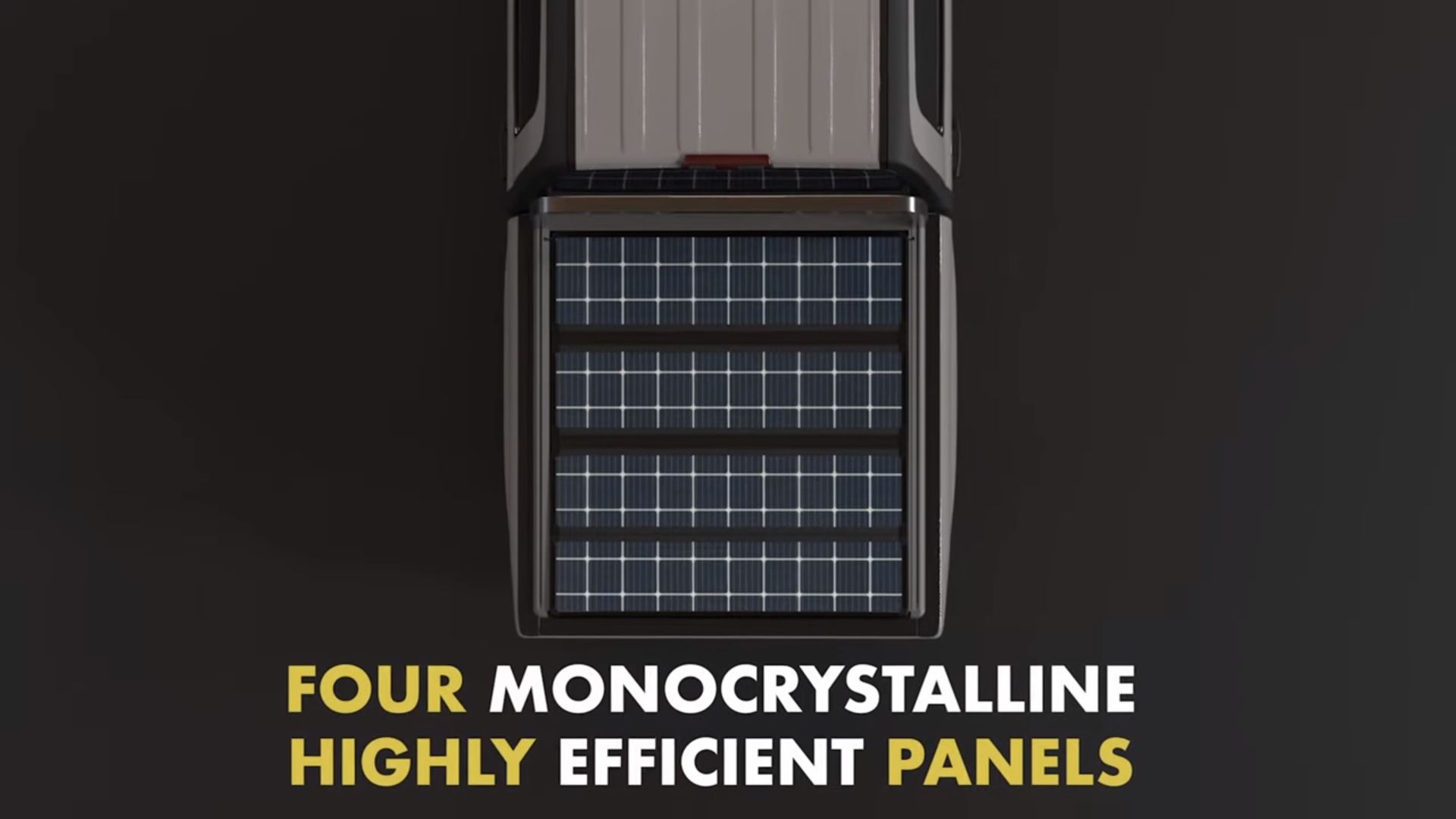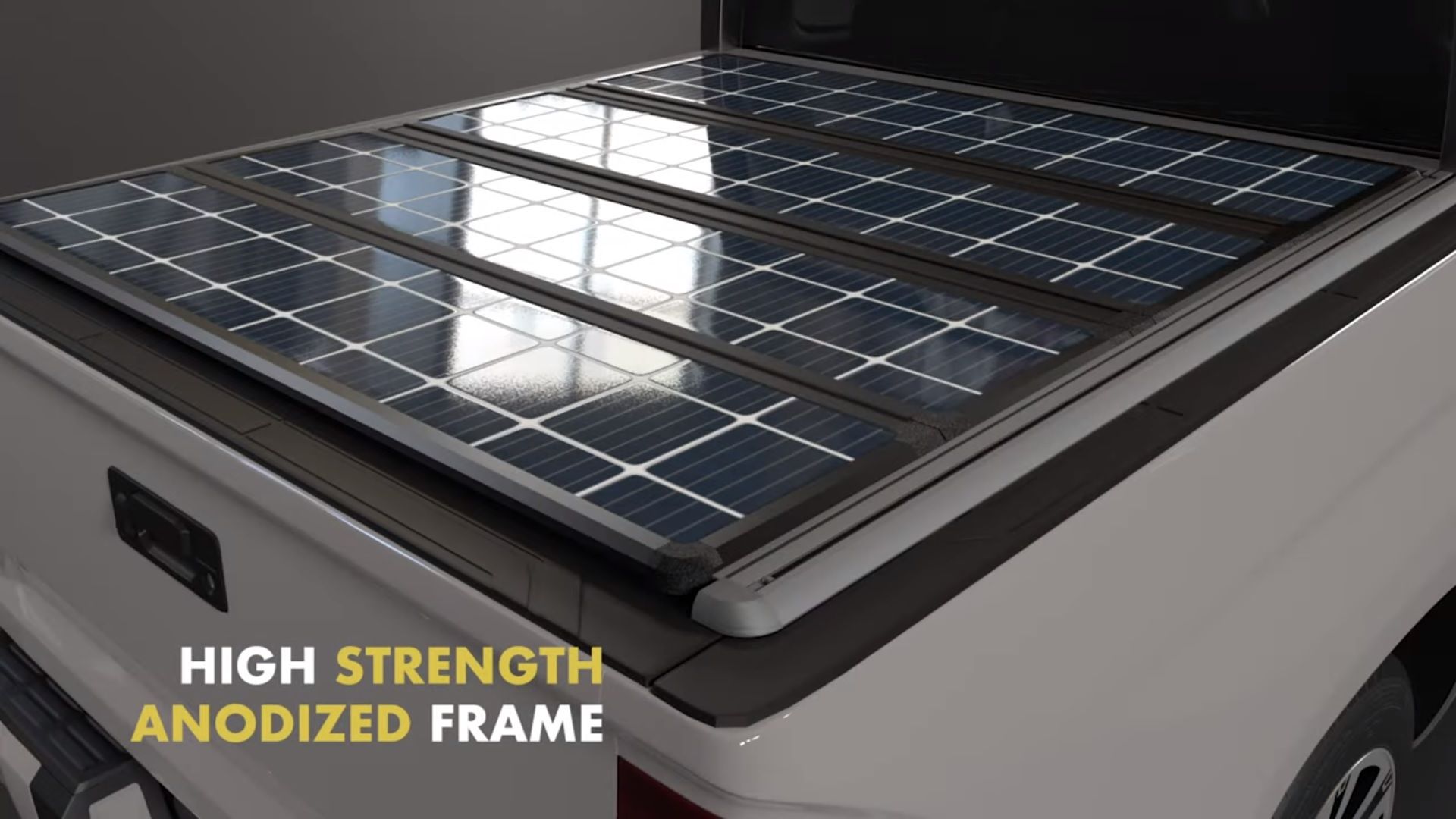Until battery technology gets fuss-free and people stop having range anxiety, we’ll have to look at alternatives to extract the maximum EV range possible. A concept that’s been discussed for a long time is having solar panels on EVs so that they help aid the range. However, we haven’t seen anything materialize in production form yet.
Now, a company called WorkSport has come up with a tonneau cover that helps with this. But, it’s not limited to just EVs. It can also be used on fuel-powered trucks for portable on-demand power. That’s a pretty creative idea.
Familiar Technology, New Application
WorkSport is known to create tough tonneau covers and they’ve now come up with one that has solar panels. Called the TerraVis, it sounds like something useful only for EVs. However, the company has mentioned that it works on fuel-powered trucks as well..
He said, "We're currently working to solidify contracts with electric pickup manufacturers and will hopefully have more details on that soon". He further added that on electric trucks, this system should offer enough power to cover about 30-percent of daily driving. This is calculated based on the fact that the average daily drive is approximately 40 miles. So, we’re talking about 12 miles of charge from this system. But, until then, it will be put to use on conventional trucks.
How Does It Work?
The TerraVis cover essentially consists of four mono-crystalline foldable solar panels that are tough enough to even handle the weight of a person walking on them. The power generated is then sent to a modular battery system mounted inside on the wall of the bed.
The TerraVis system has an output of 5000 Watts. WorkSport is custom-designing it so it can be used on internal combustion-engined trucks for portable on-power demand. It will be highly effective where you need power supply but don’t have access to, such as job sites, campsites, etc. Apart from this, there’s a one-kWh pack as well that powers the portable charging pack that houses 110 Volts AC power inverter. This can be detached and carried around. Once exhausted, it can be replenished in 20 minutes when you plug it back into the battery packs.
Is This Technology Already In Place?
Although this technology may sound familiar to a lot of folks, it is relevant only in the case of EVs. Tesla has touched base on this. When the Cybertruck was launched, a twitter user asked if the tonneau cover will be solar-powered and Musk replied, “Will be an option to add solar power that generates 15 miles per day, possibly more. Would love this to be self-powered. Adding fold out solar wings would generate 30 to 40 miles per day. Avg miles per day in US is 30.”
Fisker also announced this on their upcoming electric crossover, the Ocean. It comes with a solar roof, but that is expected to add about 1000 miles annually. That’s approximately 83 miles a month, which is less than three miles every day. Another car called Sono Sion is expected to replenish 18 miles of range every day. The best of them all, however, is the Lightyear One which will have solar cells placed on and around the roof and are expected to add 7.5 miles in an “hour” to the battery. None of these vehicles are out yet, but it’s safe to say that the technology is not unheard of.
Final Thoughts
This isn’t available for purchase yet and even the pricing is not announced. The CEO did say that it won’t be priced exorbitantly high. Portable on-demand power is becoming common with the newer breed of trucks, but wasn’t popular back in the day. This TerraVis tonneau cover on such trucks will be quite useful. We’ll have to wait and watch how this is priced.



